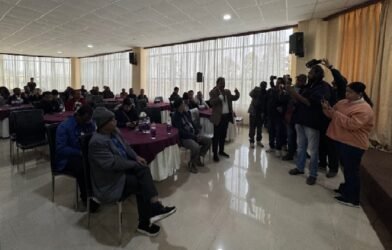Subtotal $0.00
Shillong, Nov 1: The Meghalaya government was directed to correct the Contributory Provident Fund (CPF) with retrospective effect within three months for college teachers.
This judgment was passed on Thursday by the division bench comprises of the Chief Justice Mohammad Yaqoob Mir, and Justice SR Sen while disposing of writ petitions filed by the Meghalaya College Teachers Association (MTCA).
“In case the government fails to correct the Contributory Provident Fund and other directions, they will have to pay the pension to government deficit/adhoc/aided college teachers and staff as per pension rule applicable to government college teachers and staff,†the court order said.
The bench has also asked the Meghalaya government to comply with the various directions in letter and spirit within three months.
The government has been directed to correct the Contributory Provident Fund immediately with retrospective effect as per the Contributory Provident Fund Rules (India), 1962 and the Assam Deficit College Employees (Pension) Rules, 1998.
According to the bench, teachers who joined service on or after 01-04-2010 can be given the benefits of the New Defined Contributory Pension Scheme with effect from 01-04-2010 instead of 01-04-2018.
It also maintained that the benefits of the Assam Non-Government (Deficit) College Central Pension and Provident Fund Act, 1997 and the Assam Deficit College Employees (Pension) Rules, 1998 be given to teachers who retired/joined prior to 01-04-2010 as well as those who are still serving and also those who retire after 2010 till 2018 and in future, with retrospective effect.
Directing the government to frame rules for all pensioner benefits including family pension for retired teachers and those who have expired as per the Assam Acts & Rules, the bench also asked the government to also take immediate care to clear the monthly salary of the teachers who are not getting their salary for months together.
The government was also asked to make rules that none of the teachers should lose even a single paise of the benefits and that should be applicable to all teachers those who have joined/retired from the time of statehood.
It should also pay the contribution which they are supposed to pay from the time of inception of statehood to the teachers serving, retired or expired.
The government is also further directed to ensure that during and after service, all the teachers should live a decent and comfortable life with their kith and kin and no teacher or their family should suffer financial constraint which leads to starvation or non-availability of treatment.
Government should adhere strictly in letter and spirit the principle of Doctrine of Equality, Article 14, 16 and 39(d) of the Directive Principles of State Policy of the Constitution of India i.e., equal pay for equal work.
“We further make it clear that government should not take the plea of financial constraint to follow the directions above. The management of fund is totally upon the respondents- government for which teacher class should not suffer,†the bench stated in its judgment.
Stating that there should be no tax deducted on the contribution made by the teachers, the bench also directed the government to issue instructions to all colleges in that regard and if any tax is deducted at the time of contribution of the Provident Fund, that is to be refunded to the teachers immediately.
In its petition, the MCTA had urged the Court to direct the state authorities to ensure implementation of the Employees Provident Fund and Miscellaneous Provisions Act, 1952 and any and all other schemes to enable the college teachers of ad hoc grant-in-aid colleges in the state to reap the benefits of the said beneficial legislations and for implementation of a post retirement social security scheme.
It stated that due to the unlawful acts of the government, the teachers of ad hoc grants in aid colleges in the state have been denied the benefits of not only the provisions of the Employees Provident Fund And Miscellaneous Provisions Act, 1952, but also deprived of the benefits of any pension scheme and on their superannuation, there is no social security scheme to protect their right to a dignified life.












